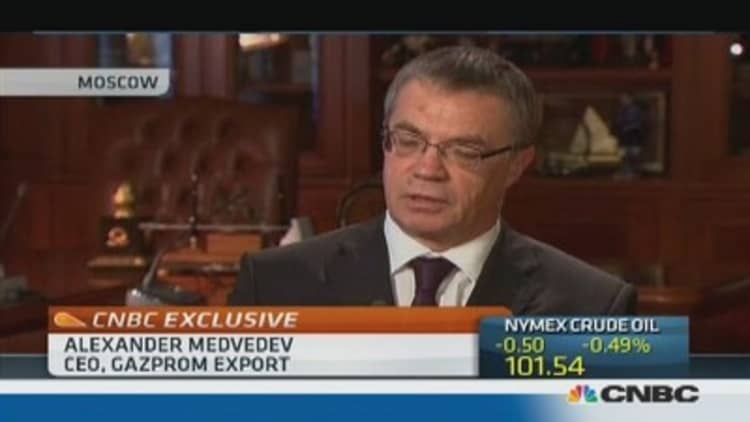
The shale gas revolution is only just beginning, but according to one leading analyst the U.K. and Europe have failed to capitalize on the maverick within the global energy market and are being left out in the cold.
"I don't think the U.K. is anywhere near catching up with the U.S.," David Thomas, lead oil & gas analyst at Credit Suisse told CNBC on Wednesday. "You have to look at how much volume is currently being produced by the U.S., and the fact that it's easy for the U.S. to carry on with its shale production."
While the exploration and production of shale gas -- an increasingly important source of cheap natural gas -- was underpinned by a supportive political and legal regime in the U.S, such support was lacking in the U.K. and Europe, Thomas said.
The U.S. has embraced shale gas production whole-heartedly, leading to a fall in domestic gas prices and making it possible that the country could achieve energy independence in oil and gas by 2035, according to the International Energy Agency. But the 27-nation European Union has been slower to explore the possibilities presented by the controversial energy supply.
(Read more: A US-style fracking revolution for the UK?)
EU policymakers are set to decide by the end of the year whether strict regulation of the industry is required. Opponents of shale gas exploration in Europe say existing environmental law is inadequate for the potential risks involved in the extraction process -- the hydraulic fracturing for the gas known as "fracking."
Reflecting public anxiety over fracking in the U.K., protests have been staged at a site where test drilling was being carried out by energy firm Cuadrilla.
(Read more: Fracking for shale gas hits a raw nerve in Europe)
The U.K. government is keen to explore shale gas as an alternative domestic energy supply, however, and on Tuesday the country's Economics Affairs Committee held its first session hearing evidence from experts on shale gas and the possible impact of its extraction.
Pro-shale gas campaigners in the energy Industry insist that shale gas provides lower energy costs, can curb greenhouse emissions and could provide a more indigenous source of energy – a moot point for the U.K. and majority of Europe which largely relies on Russia for its gas supply.

Thomas said there would be a "very slow development in shale outside the U.S" with Europe posing challenges in terms of its higher population density, different land rights, oil field services and geology.
"We think that overall, global shale gas revolution will be slower going into 2020 and beyond," Credit Suisse's analyst said.
Further stoking the controversy surrounding shale gas in Europe, the chief executive of Shell said on Tuesday that he regretted his company's huge bet on shale.
Shell has invested at least $24 billion in so-called unconventional oil and gas in North America but it has struggled make a profit out of the venture. Other companies like BP also entered the shale sector late in the game and overpaid for shale gas assets.
(Read more: Natural gas: Risks and rewards for Gazprom boss)
"It's clearly the dominion of the U.S. producers. Shell got in late as many of the European companies did. Most of the U.S. companies have the access to the best resources and those that are the most [natural gas] liquid rich - not just the gas itself."
Despite his negative outlook for Europe's shale exploration in the U.S, Thomas said there could be "huge" opportunities for oil and gas producers, as well as oil service subsectors, in countries such as Argentina and China.
- By CNBC's Holly Ellyatt, follow her on Twitter @HollyEllyatt


